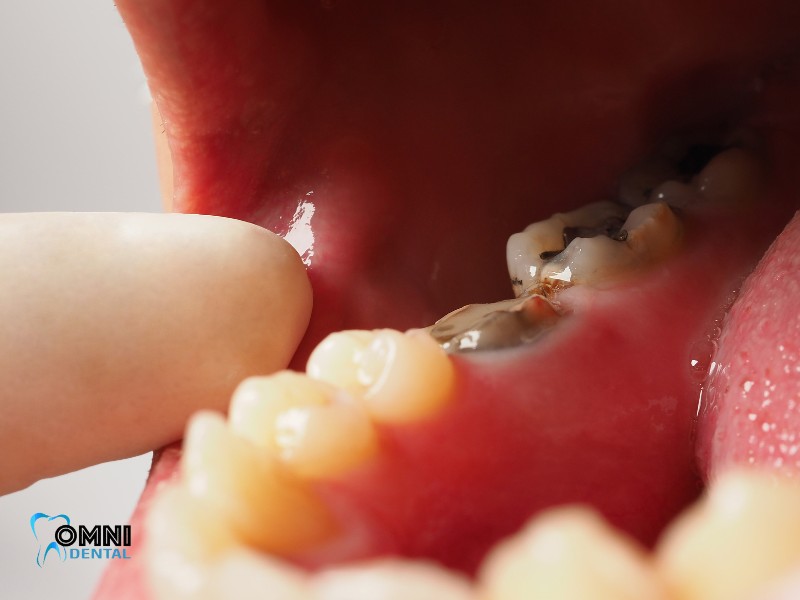Introduction to Tooth Decay
Tooth decay is a common problem that affects many people. It happens when the hard surface of your teeth, called enamel, starts to break down. This can lead to holes in your teeth, known as cavities. But what causes this to happen?
What Causes Tooth Decay?
Tooth decay starts with the foods we eat. Sugars and starches from our meals can stick to our teeth. Bacteria in our mouths love to eat these sugars and starches, creating acids as they do. These acids can start to harm our tooth enamel, the outer solid layer of our teeth.
The Role of Sugars and Starches
Eating lots of sugar and starches can make tooth decay worse. Foods like candy, cookies, soda, and fruits can leave sugar on our teeth. It’s not just candy that’s the problem. Foods like bread, pasta, and potatoes can also cause issues because they have starches.
How Tooth Decay Affects Your Oral Health
Tooth decay doesn’t happen overnight. It goes through stages, and it can affect more than just the surface of your teeth.
Early Stages of Tooth Decay
In the early stages, tooth decay can start to make small changes in the enamel. Your teeth might start losing minerals, a process called demineralization. White spots may appear on your teeth where minerals have been lost. This is a sign that decay is starting.
As a result, you might notice white spots on your teeth, indicating where minerals have been lost. These early warning signs indicate the decay process has been initiated. Understanding these initial stages is vital in preventing further progression, and you can learn more about the five stages of tooth decay in our comprehensive article on ‘Five Stages Of Tooth Decay.
The Impact on Tooth Enamel and Tooth Loss
If tooth decay is not stopped, it can eat through the enamel and create cavities. Without treatment, decay can go deeper into the tooth, affecting the inner parts. This can lead to pain, infection, and even tooth loss.
Preventing Tooth Decay: Effective Strategies
There are many ways to prevent tooth decay. Let’s examine some of the best strategies to keep our teeth healthy.
The Importance of Brushing Your Teeth
Brushing your teeth is one of the best ways to fight tooth decay. It helps remove the sugars and starches that bacteria eat. Brushing with a fluoride toothpaste is especially good. Fluoride can help repair the enamel on your teeth and prevent decay.
Brushing with a Fluoride Toothpaste
Fluoride toothpaste makes your teeth more robust and less likely to get cavities. Brushing twice daily, in the morning and before bed, is essential. This helps keep your teeth clean and free from decay.
The Benefits of Dental Sealants
Dental sealants are a great way to protect your teeth. They are thin, protective coatings put on the chewing surfaces of the back teeth. Sealants can keep food and bacteria from getting stuck in the grooves of your teeth, helping to prevent decay.
Fluoride Treatments: A Shield for Your Teeth
Fluoride treatments at the dentist can give your teeth extra protection against decay. These treatments put more fluoride on your teeth than in toothpaste or water. This can help make your teeth even stronger.
This section of the article introduces the topic, outlines the causes and effects of tooth decay, and begins discussing prevention methods. I’ll continue with the rest of the article in the next part to cover diet, advanced prevention techniques, the importance of dental check-ups, and conclude the discussion.
The Role of Diet in Preventing Tooth Decay
What you eat plays a big part in keeping your teeth healthy. Here’s how you can eat smart to protect your smile.
Balanced Meals and Limiting Snacking
Eating balanced meals helps keep your teeth strong. Foods rich in calcium, phosphorus, and vitamin D are good for your teeth. Try to limit snacking between meals, especially on sugary foods and drinks, to give your teeth a break from fighting off acids.
Foods and Drinks to Avoid
Be mindful of foods and drinks high in sugar and starch to prevent tooth decay. Soda, candy, and even dried fruits can stick to your teeth and feed the bacteria that cause decay. Drinking water instead of sugary drinks can help protect your teeth.
Advanced Prevention Techniques
Besides primary care, there are more steps you can take to keep your teeth healthy.
Mouth Rinses for Extra Protection
Mouth rinses with fluoride can add extra protection against tooth decay. They can help reduce plaque and prevent demineralization. However, not everyone needs a fluoride mouth rinse, so it’s best to ask your dentist.
Brushing and Flossing: The Dynamic Duo
Brushing cleans the surfaces of your teeth, but don’t forget about flossing! Flossing gets between your teeth to remove plaque and food particles that a toothbrush can’t reach. Together, brushing and flossing are your best defense against tooth decay.
The Importance of Regular Dental Check-Ups
Seeing your dentist regularly is critical to preventing tooth decay.
Catching Dental Caries in the Early Stages
Regular check-ups can help catch tooth decay early, sometimes before you know it’s there. Your dentist can spot early signs of decay and suggest treatments to stop it in its tracks.
Professional Cleanings and Personalized Advice
Dental check-ups also include a professional cleaning, which can remove plaque and tartar that brushing and flossing at home can’t. Plus, your dentist can give you personalized advice on caring for your teeth based on your needs.

Your Path to a Healthier Smile
Understanding tooth decay and how to prevent it is crucial for maintaining your oral health. You can keep your smile bright and healthy by brushing and flossing regularly, eating a balanced diet, and visiting your dentist. Remember, preventing tooth decay is not just about avoiding cavities; it’s about keeping your whole mouth healthy for a lifetime.
Don’t wait for tooth decay to start making changes. Take steps now to protect your teeth. Your smile will thank you!




